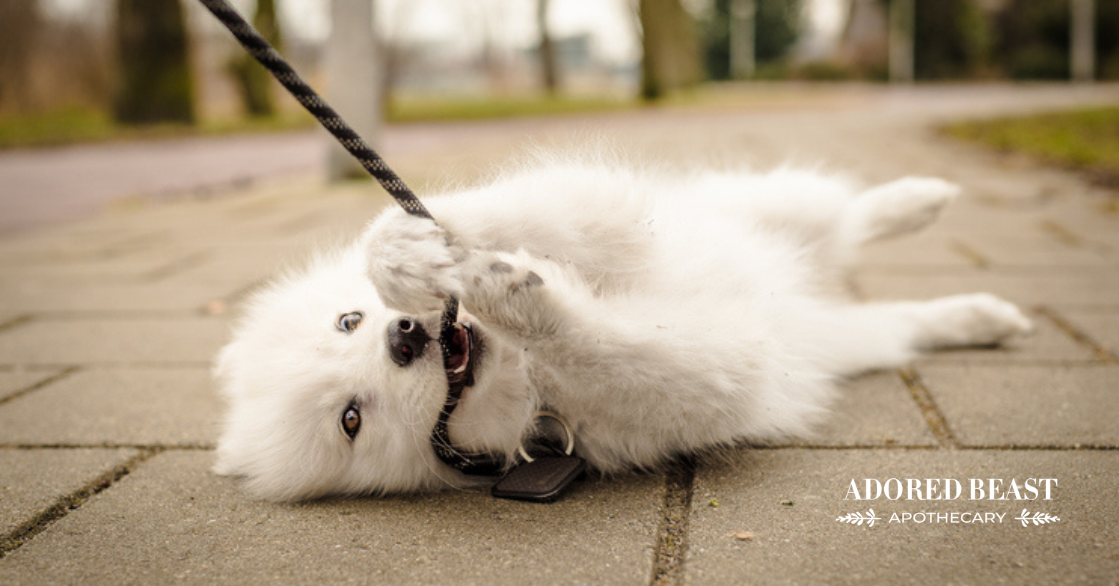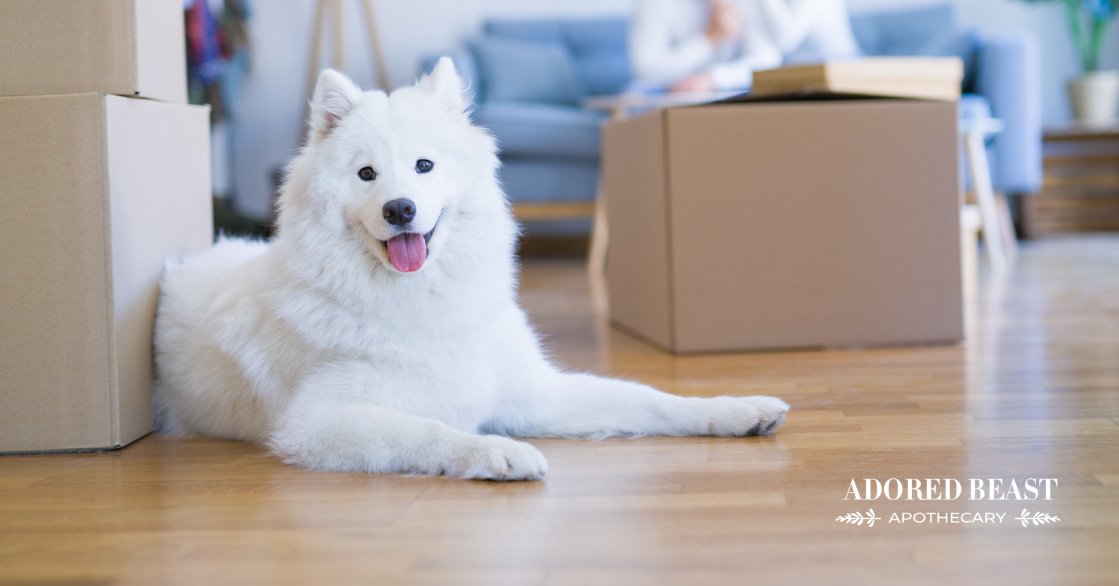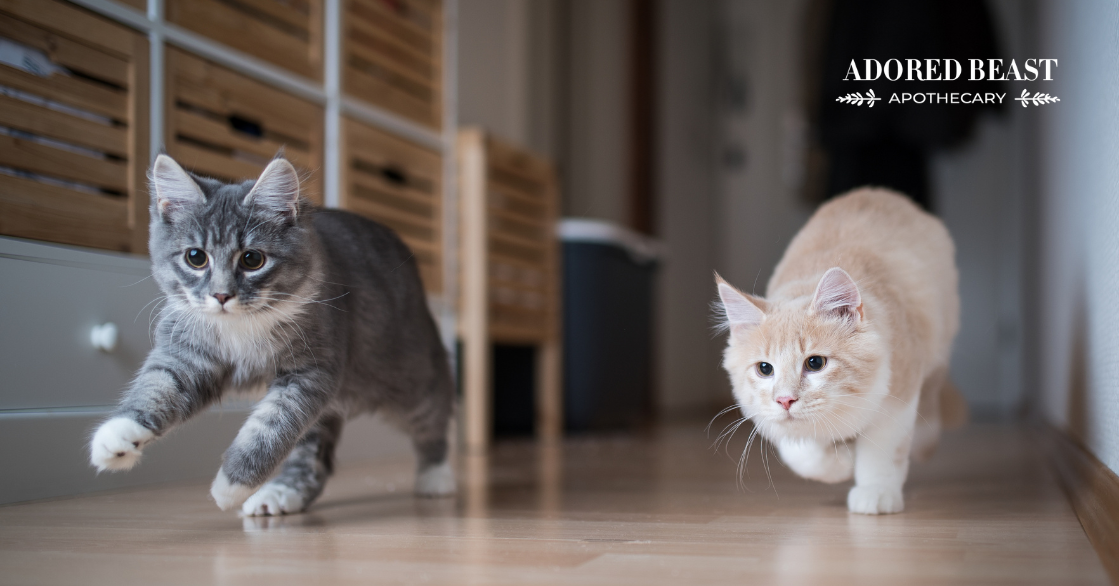Most pet parents have heard of it. And while it is not common, it’s a condition that many fear because of its severity.
Bloat in dogs is a serious and potentially life-threatening condition that requires immediate attention. With bloat, you have to act fast, so knowing as much as possible before it ever strikes (and hopefully it never does), is important!
In this blog, we’ll delve into the causes, symptoms, prevention strategies, and appropriate actions if your canine companion shows signs of bloat.
What is Bloat in Dogs?
Bloat, also known as gastric dilatation and volvulus (GDV) or twisted stomach, occurs when a dog’s stomach fills with gas, fluid, or food, causing it to expand. This distension can lead to a rotation or twisting of the stomach. It can twist anywhere from 180 to a full 360 degrees. This cuts off the blood supply, which means food, blood, etc., can’t enter or exit.
The exact cause of bloat is not fully understood, but several factors may contribute to its development, including:
- Dietary Factors: Eating too quickly, consuming large meals, or eating from elevated bowls may increase the risk of bloat.
- Breed: Certain breeds, especially deep-chested ones like Great Danes, Boxers, and Doberman Pinschers, are more prone to bloat.
- Genetics: There may be a genetic component, as some dogs with a family history of bloat are more susceptible.
- Age and Sex: Older dogs and males are generally more at risk.
- Stress and Anxiety: Stressful situations or excessive activity around mealtime may contribute to bloat.
Symptoms of Bloat
As mentioned, recognizing the symptoms of bloat is crucial for prompt intervention.
Common signs include:
- Distended Abdomen: A visibly swollen or tight belly.
- Unproductive Vomiting: Attempts to vomit without bringing anything up.
- Restlessness: Agitation, pacing, or an inability to get comfortable.
- Excessive Drooling
- Shaking or Trembling
- Difficulty Breathing: Rapid, shallow breathing or panting.
- Weakness or Collapse: A dog may become weak, lethargic, or even collapse.
If you notice any of the symptoms above, it’s crucial to act quickly:
- Contact Your Vet Immediately: Time is of the essence. Call your veterinarian or emergency animal hospital for guidance.
- Avoid Food or Water: Do not give your dog anything to eat or drink.
- Homeopathy: Certain remedies may be helpful as you head to the vet – we would reach for Carbo Vegetabilis and Nux Vomica.
- Monitor Vital Signs: Keep an eye on your dog’s breathing and overall condition while awaiting veterinary assistance.
- Transport Safely: If possible, transport your dog to the vet while keeping them calm and avoiding sudden movements.
Can Bloat be Prevented?
While some factors leading to bloat are beyond your control, there are several strategies you can implement to reduce the risk:
- Slow Feeding: Use slow-feed bowls or puzzle feeders to discourage rapid eating.
- Multiple Small Meals: Feed your dog smaller, more frequent meals throughout the day.
- Avoid Raised Bowls: Contrary to popular belief, elevated food bowls have not been proven to prevent bloat and may even increase the risk. In fact, a study by Purdue University’s College of Veterinary Medicine found that raised bowls might increase the risk of bloat (with other factors contributing.
- Limit Activity Around Meals: Discourage vigorous exercise or excitement immediately before and after eating. Think about it like the “wait 30 minutes after eating to swim” rule.
Bloat in dogs is a serious condition that demands immediate veterinary attention. Don’t wait – it is not something that will resolve itself, and there are not at-home remedies that will fix it. Thankfully, understanding the causes, recognizing symptoms, and implementing preventive measures can significantly reduce the risk. If you suspect your dog is experiencing bloat, act swiftly, and seek veterinary assistance to ensure the best possible outcome for your furry friend.












![[RESEARCH] Is Herbicide Safe for Dogs?](https://blog.adoredbeast.com/wp-content/uploads/2025/06/herbicides-safe-for-dogs-103x55.png)